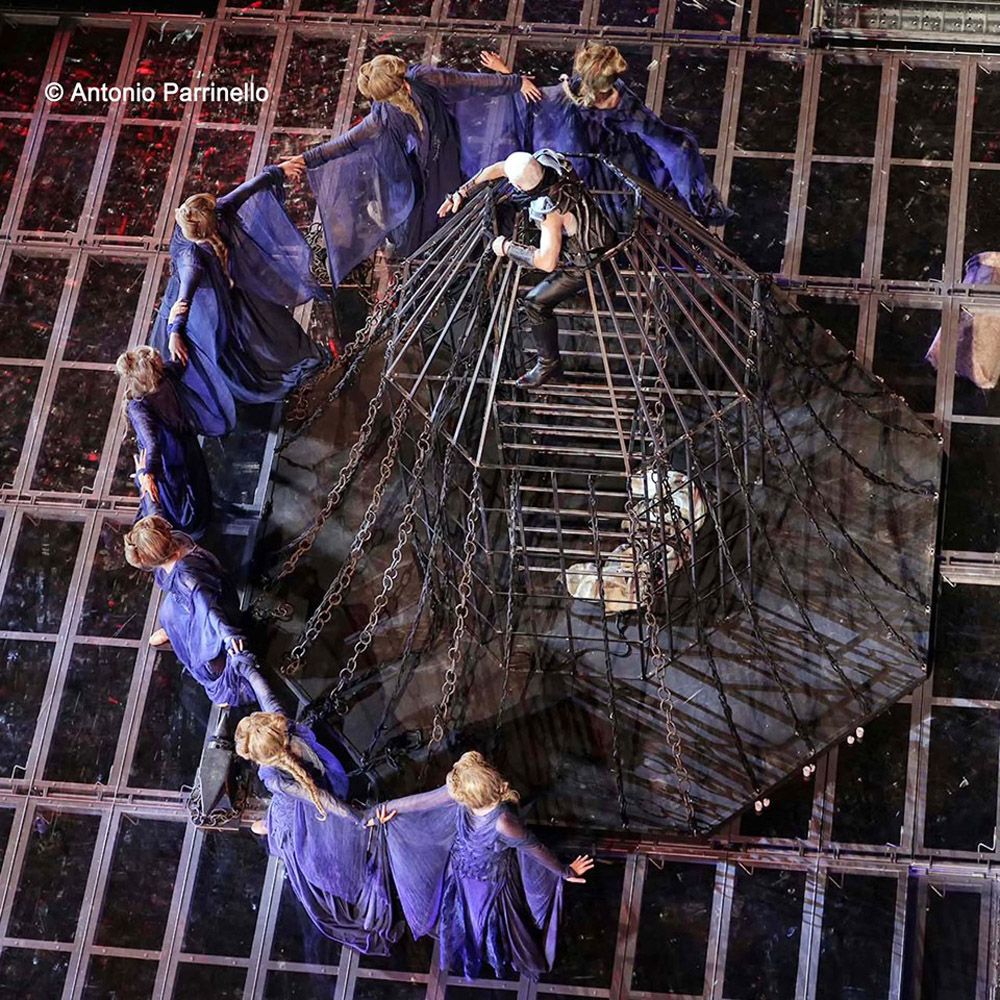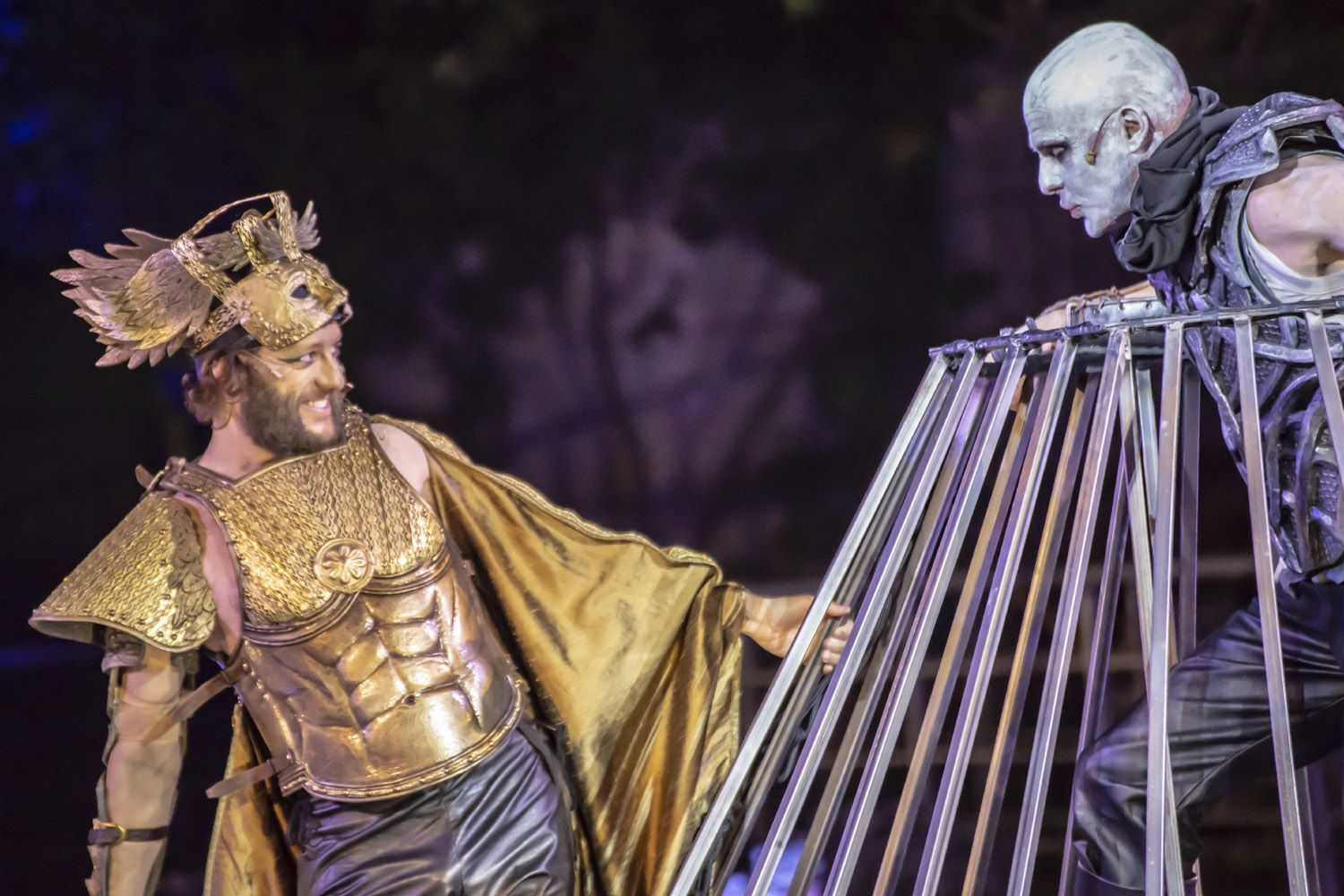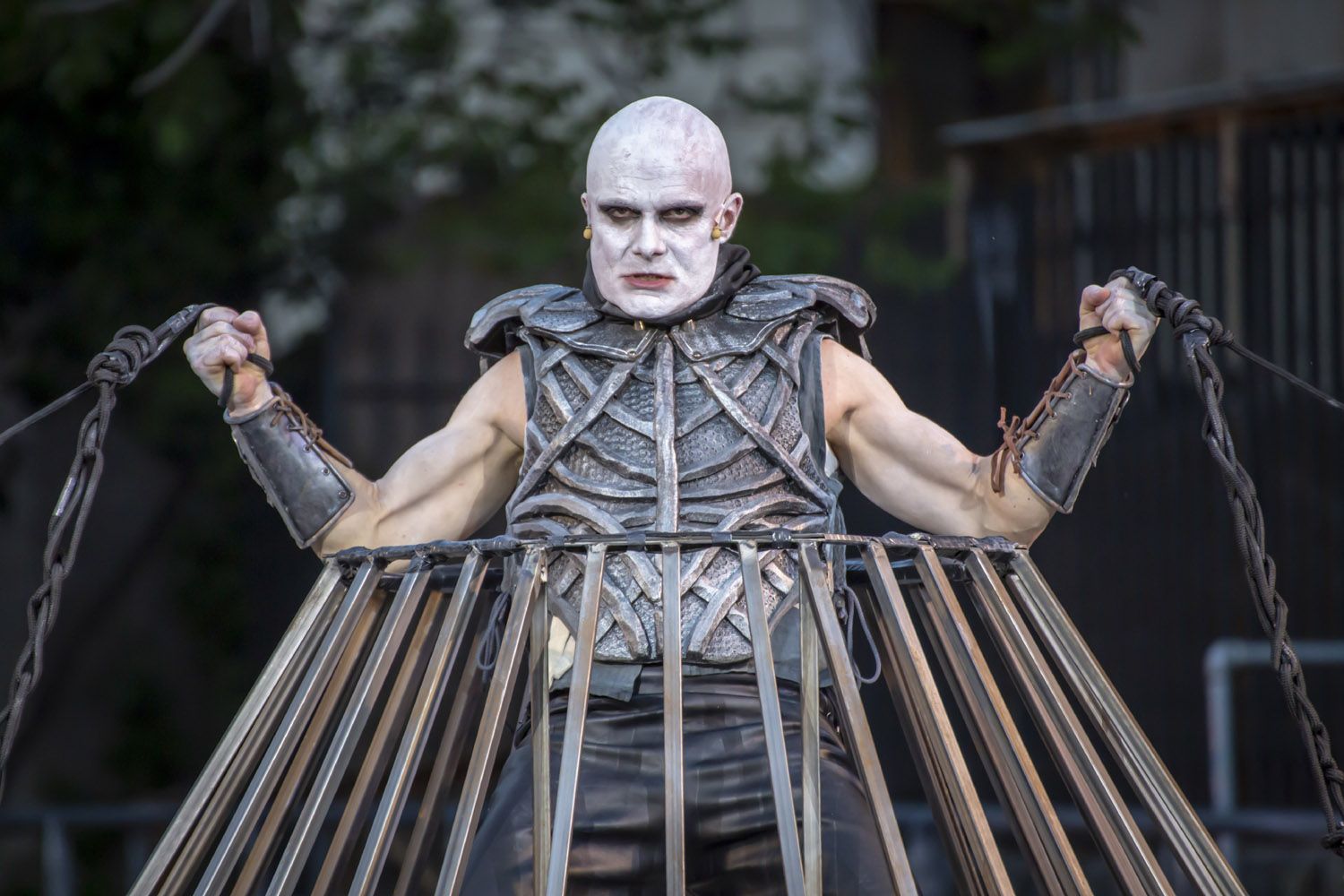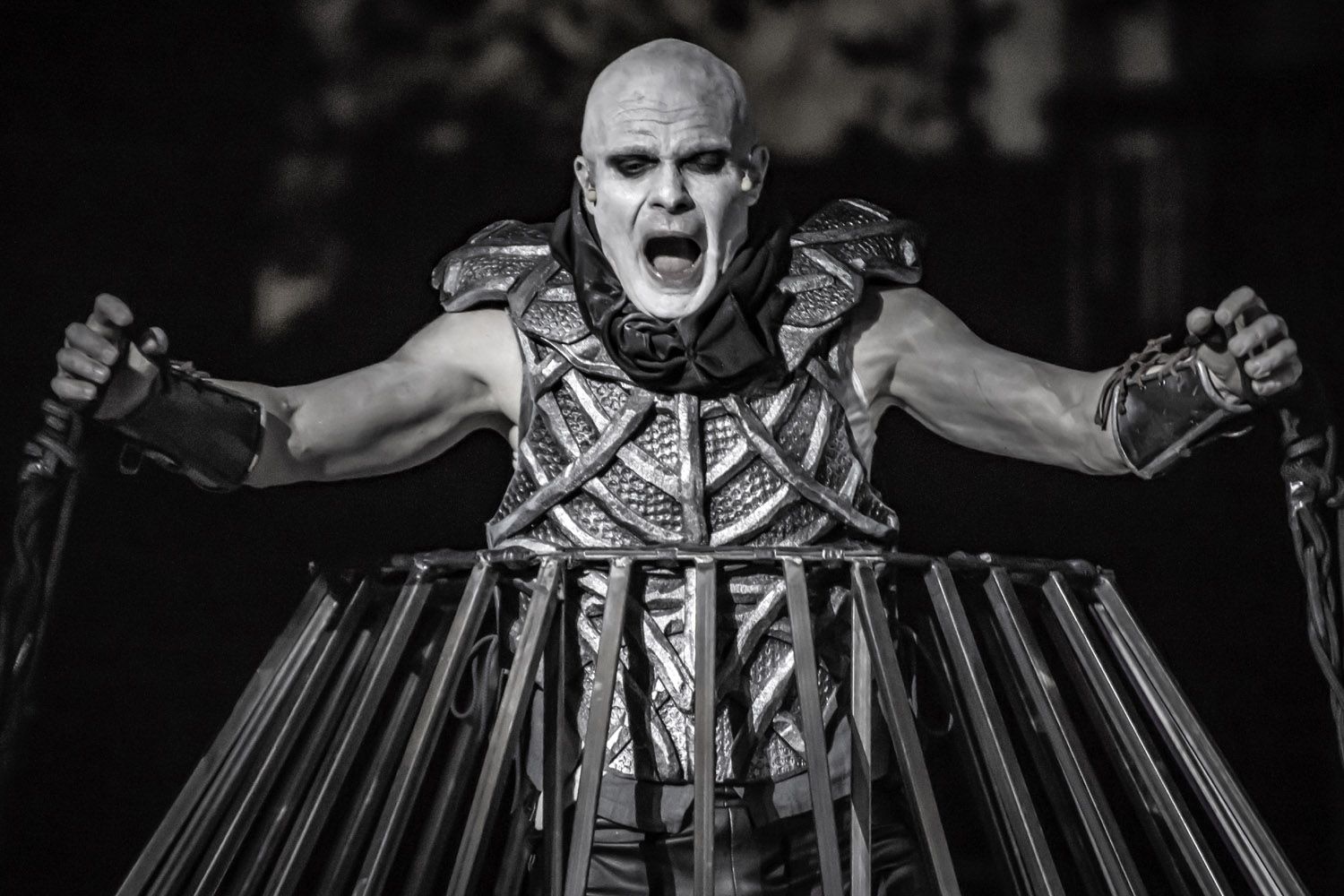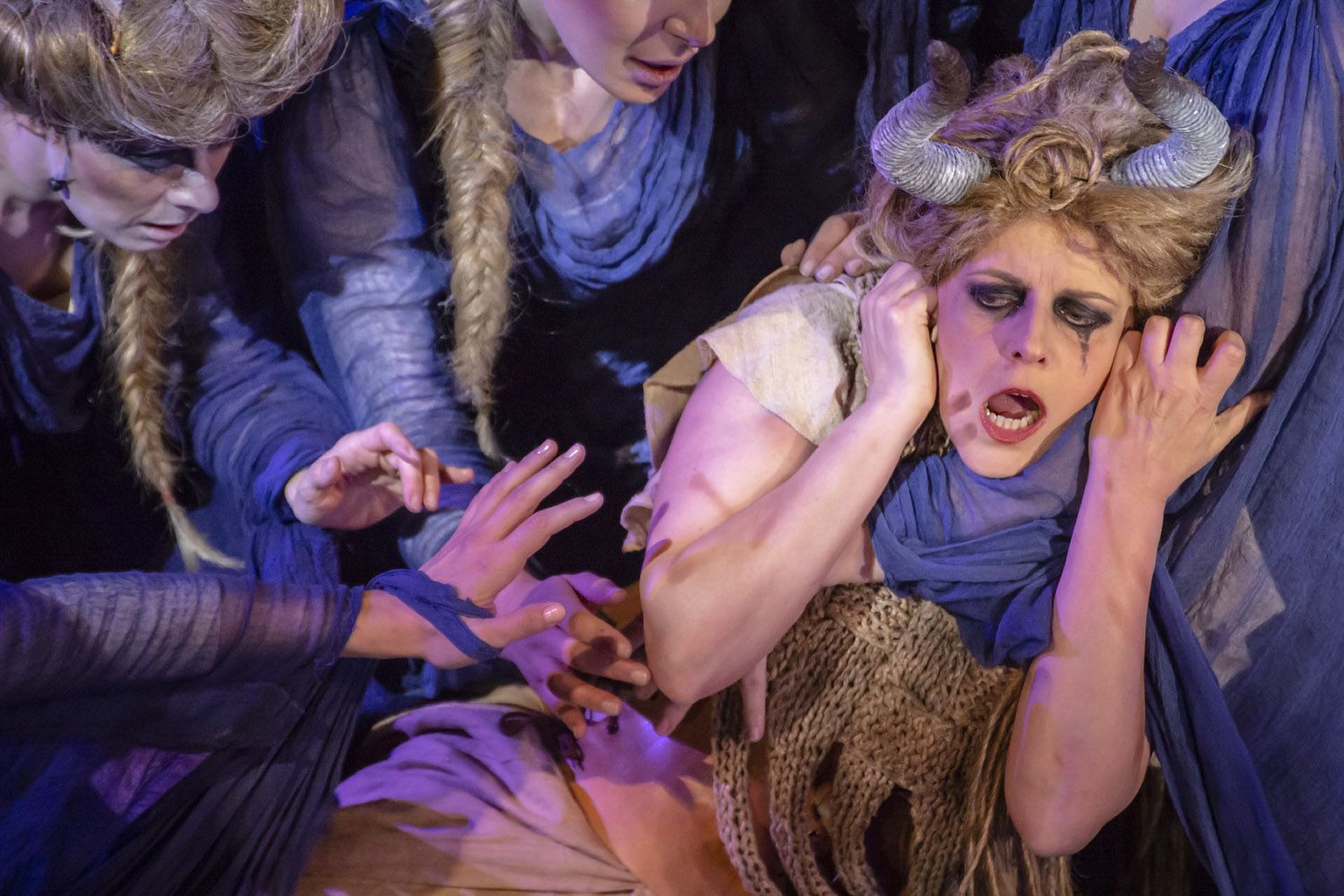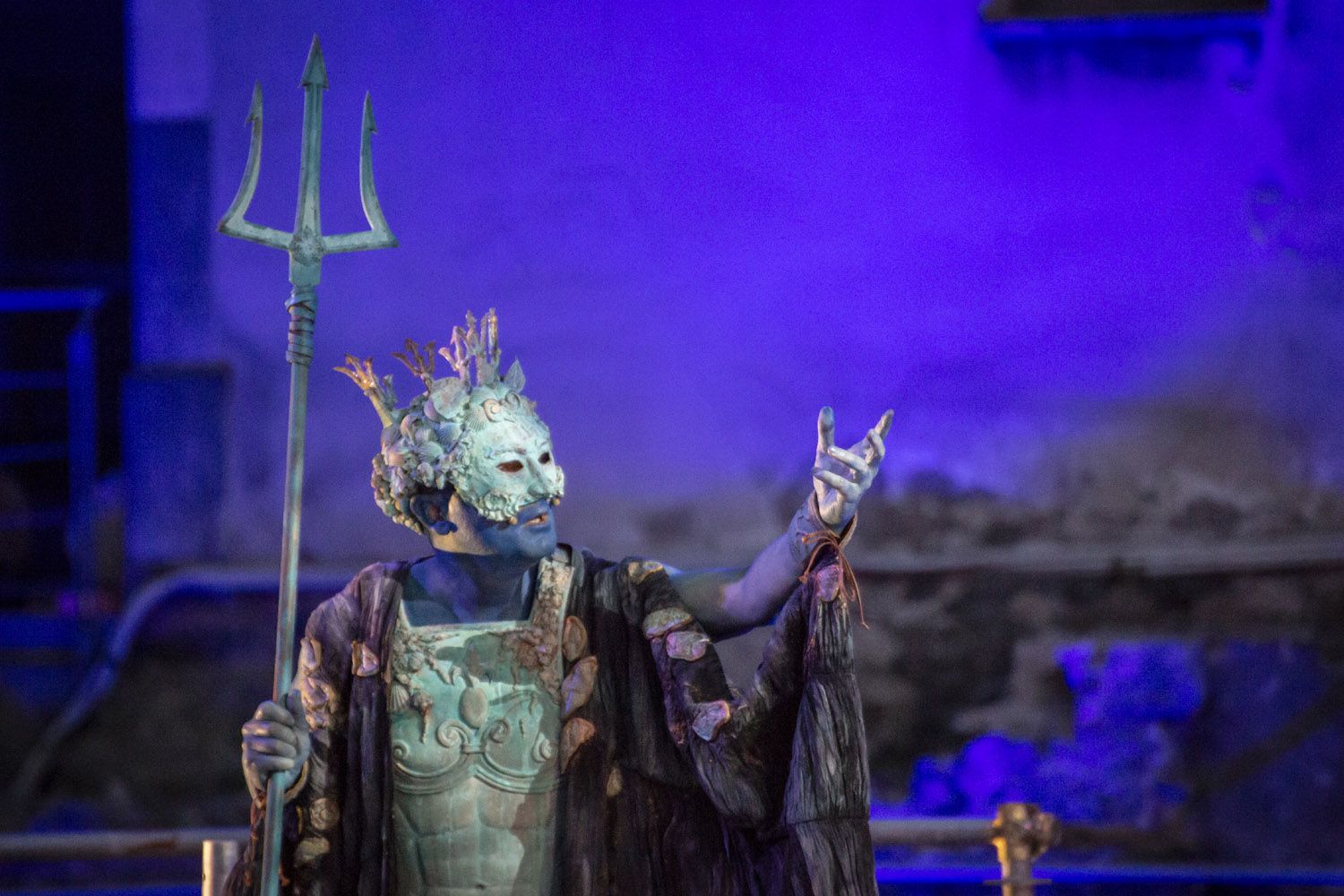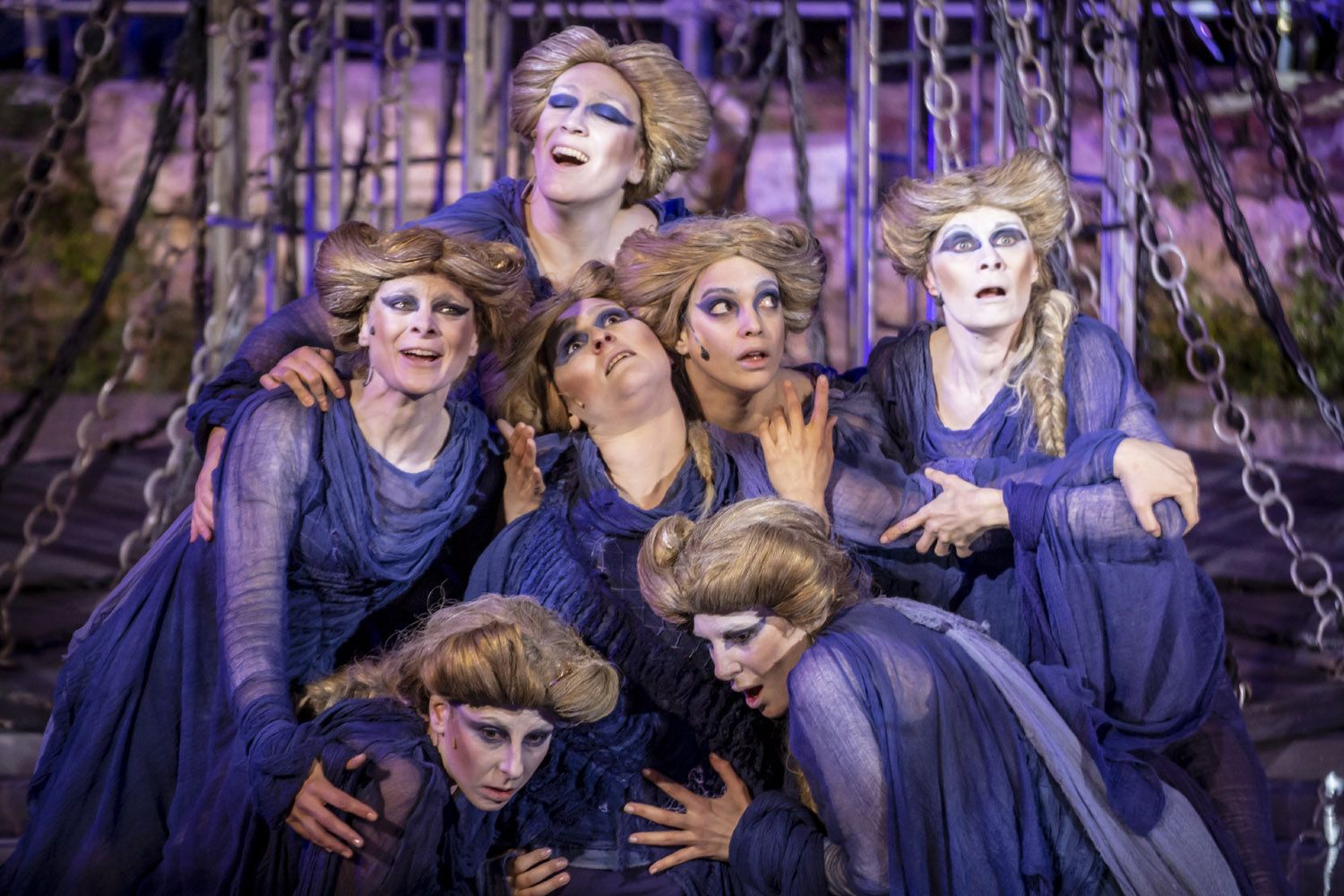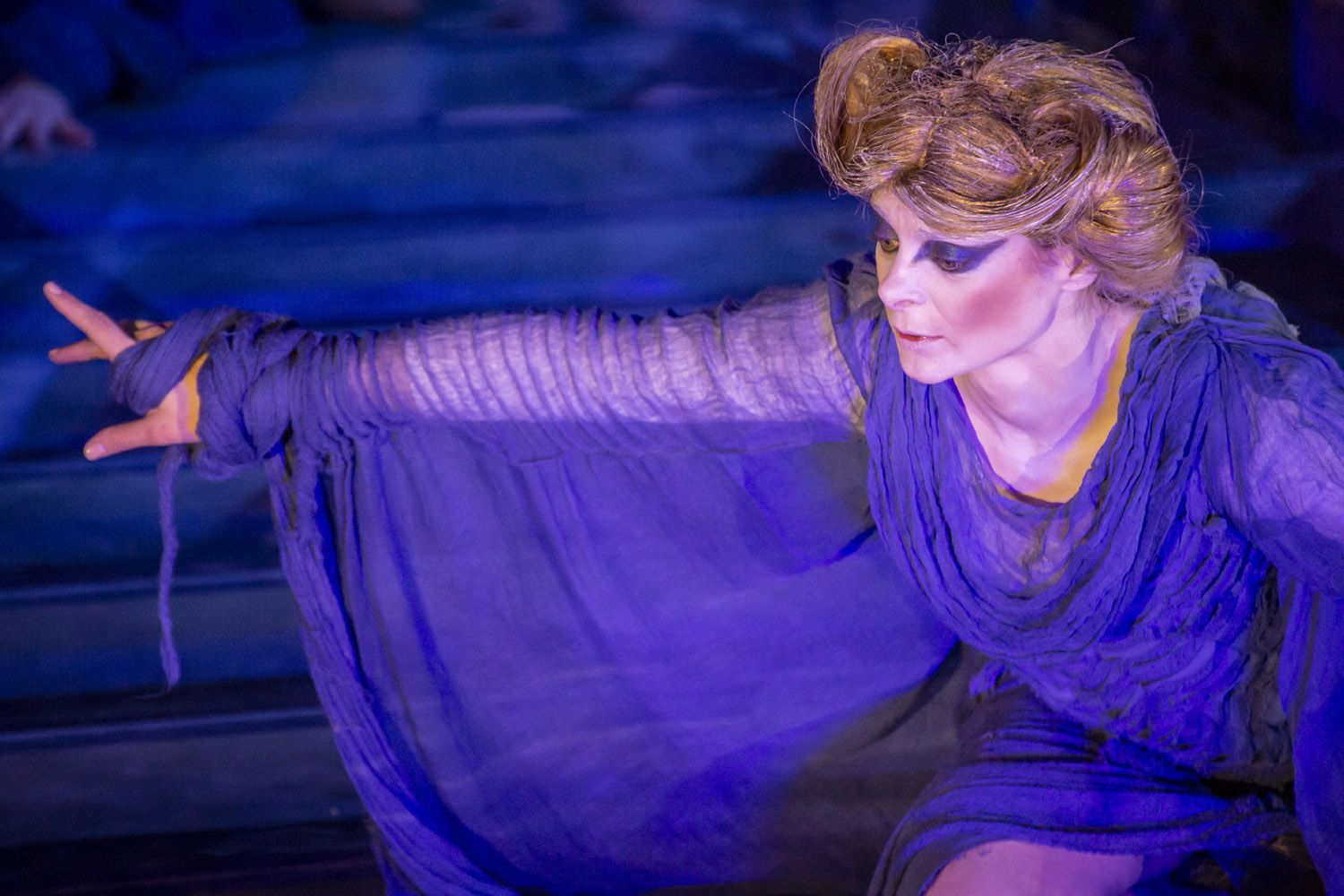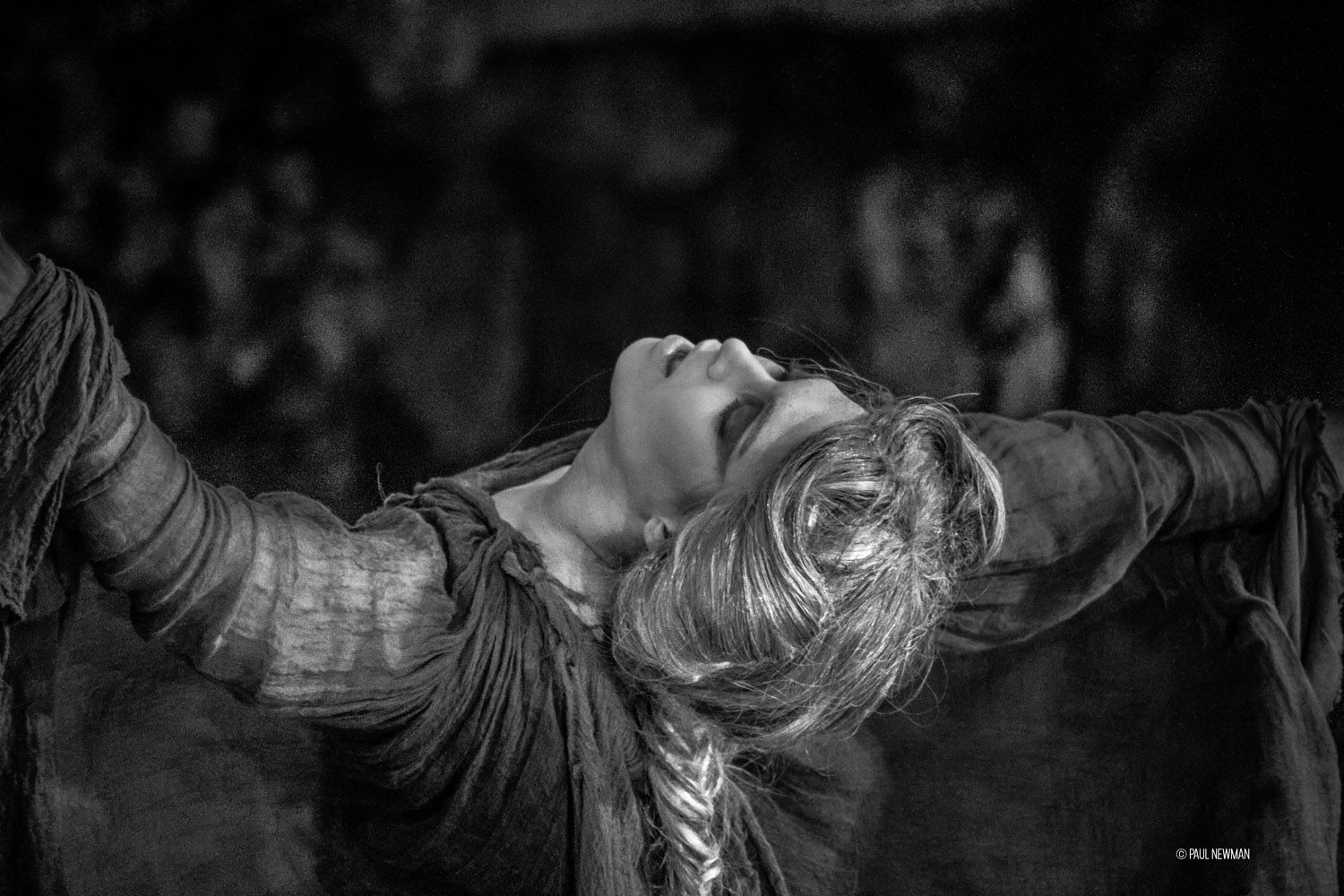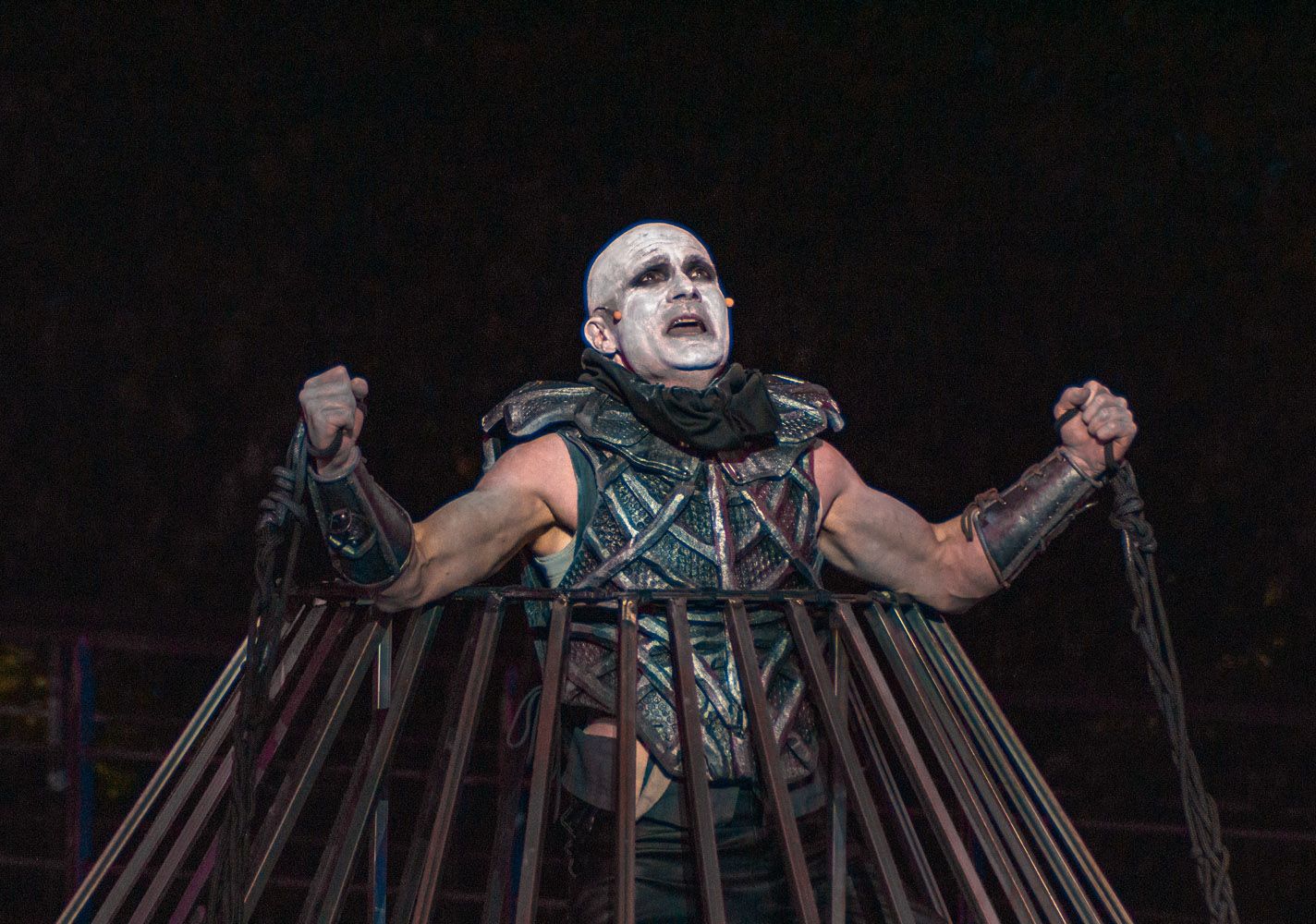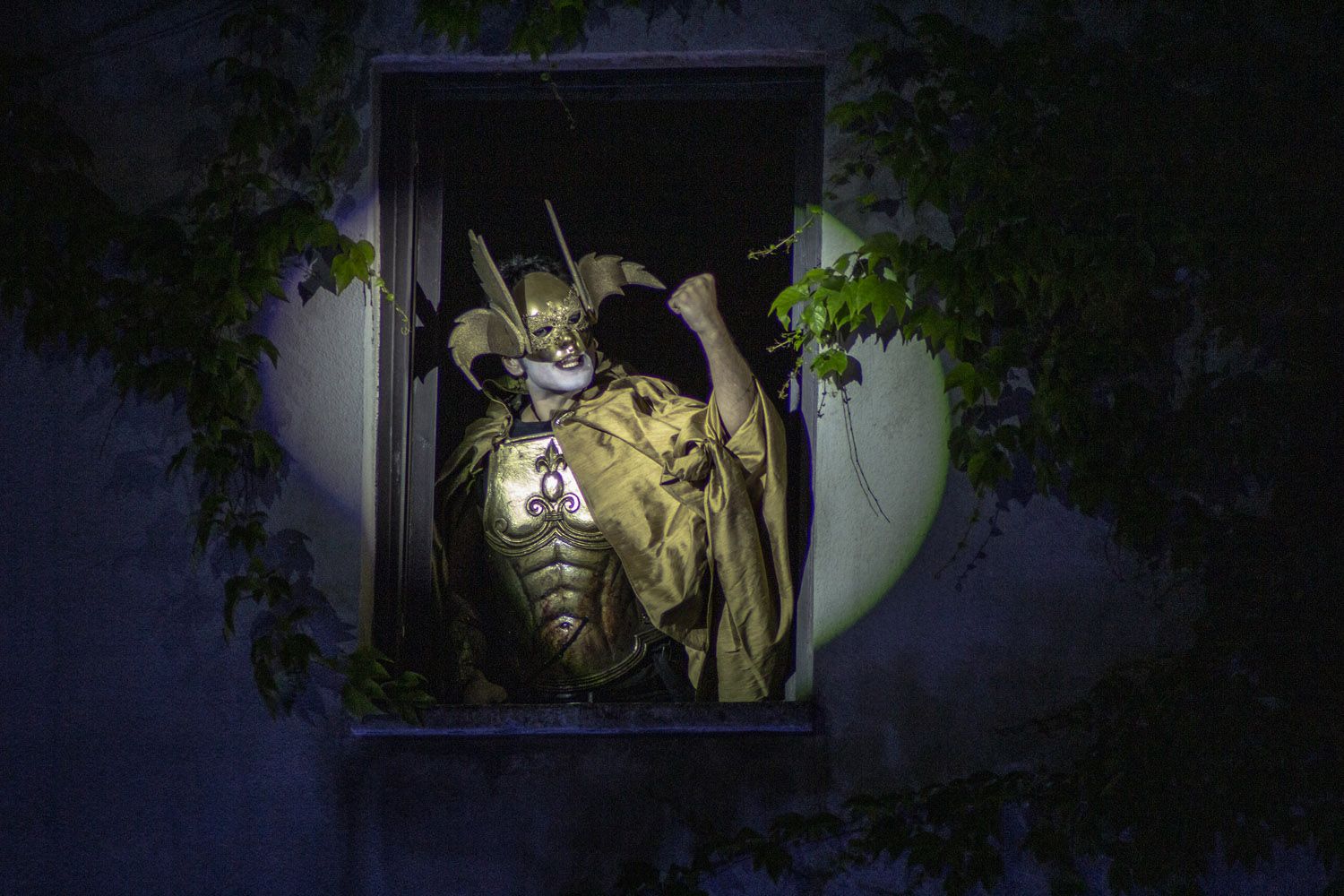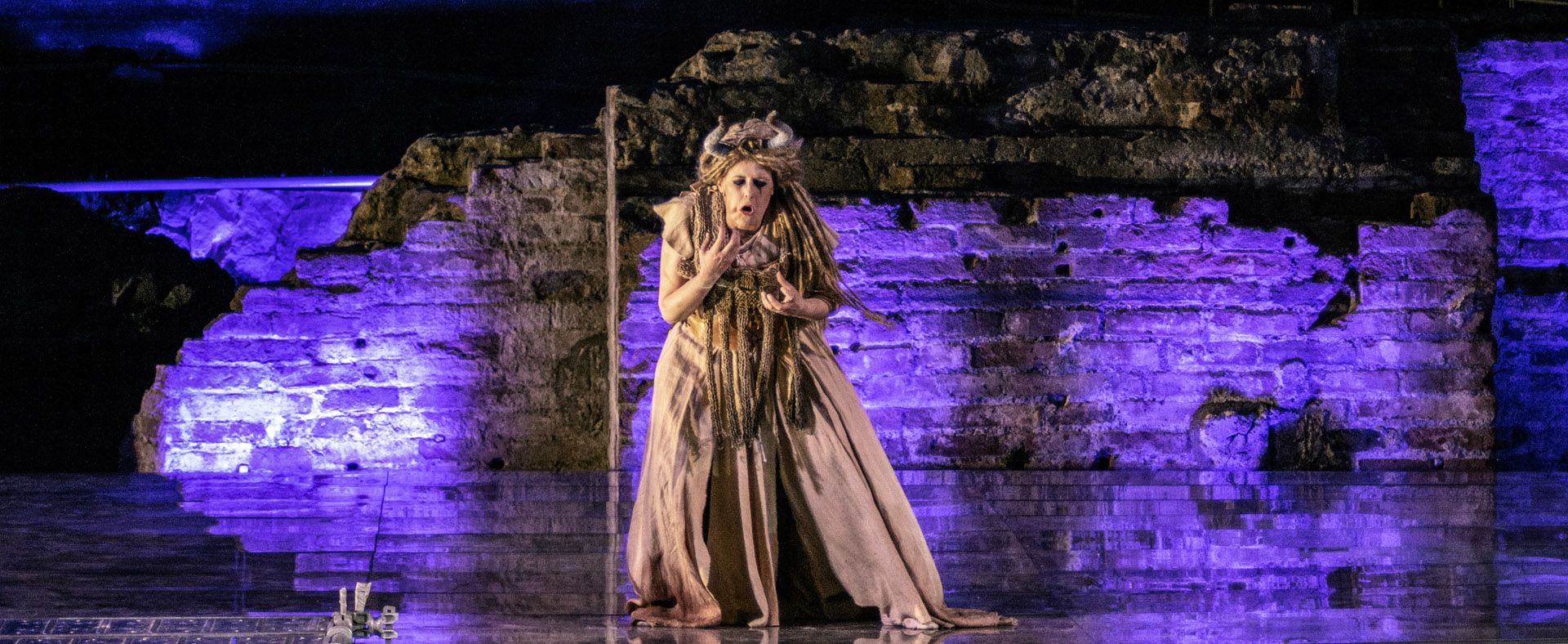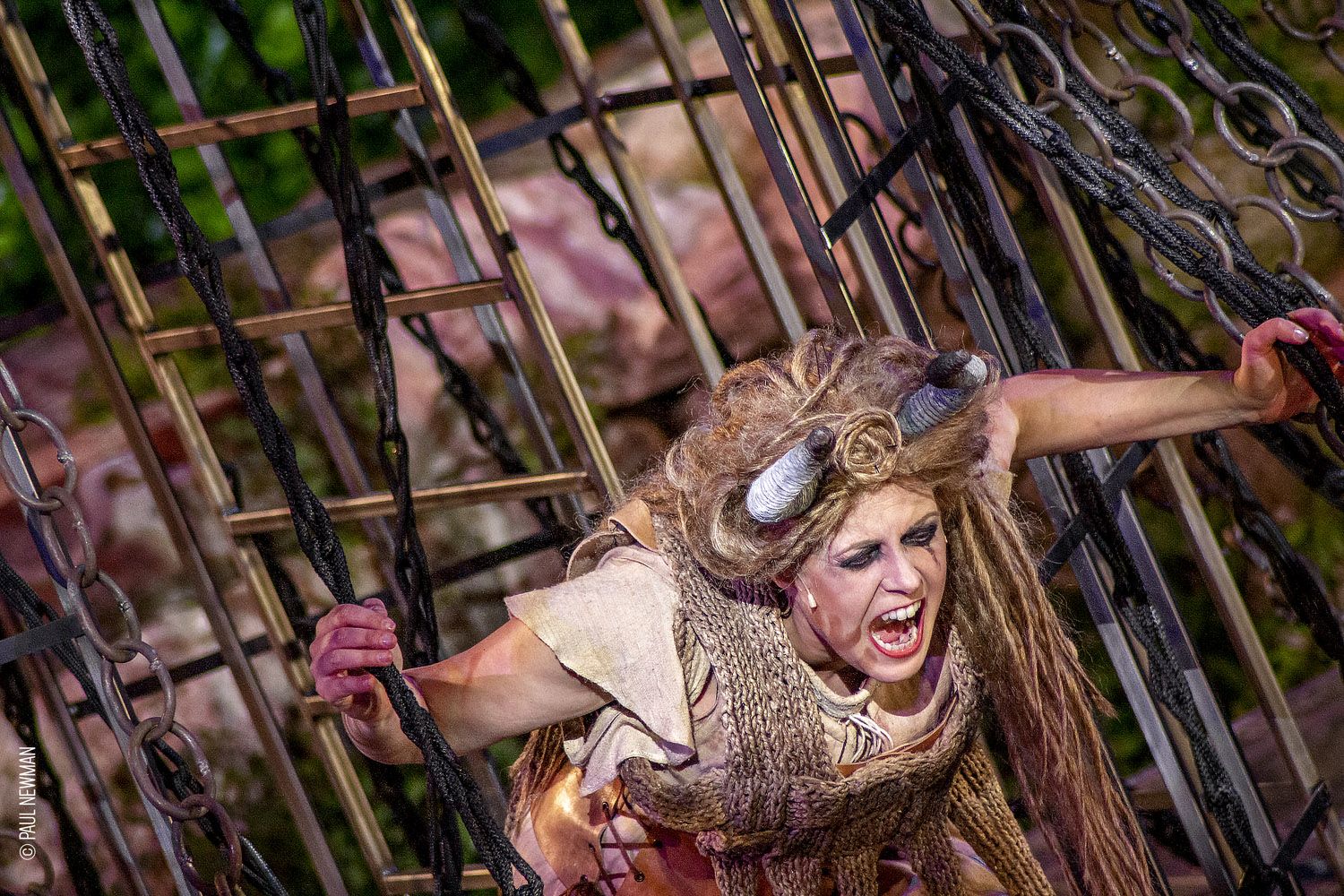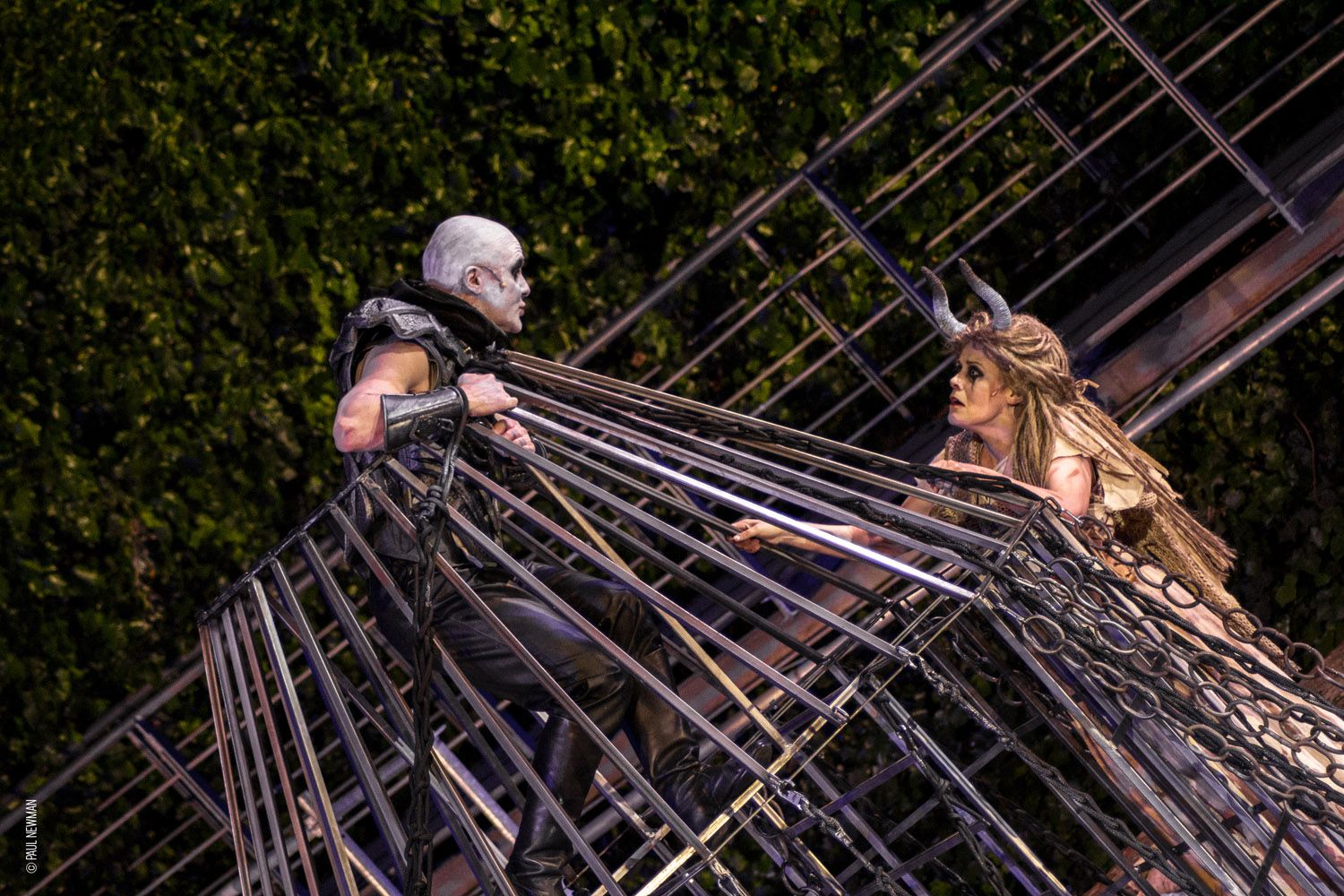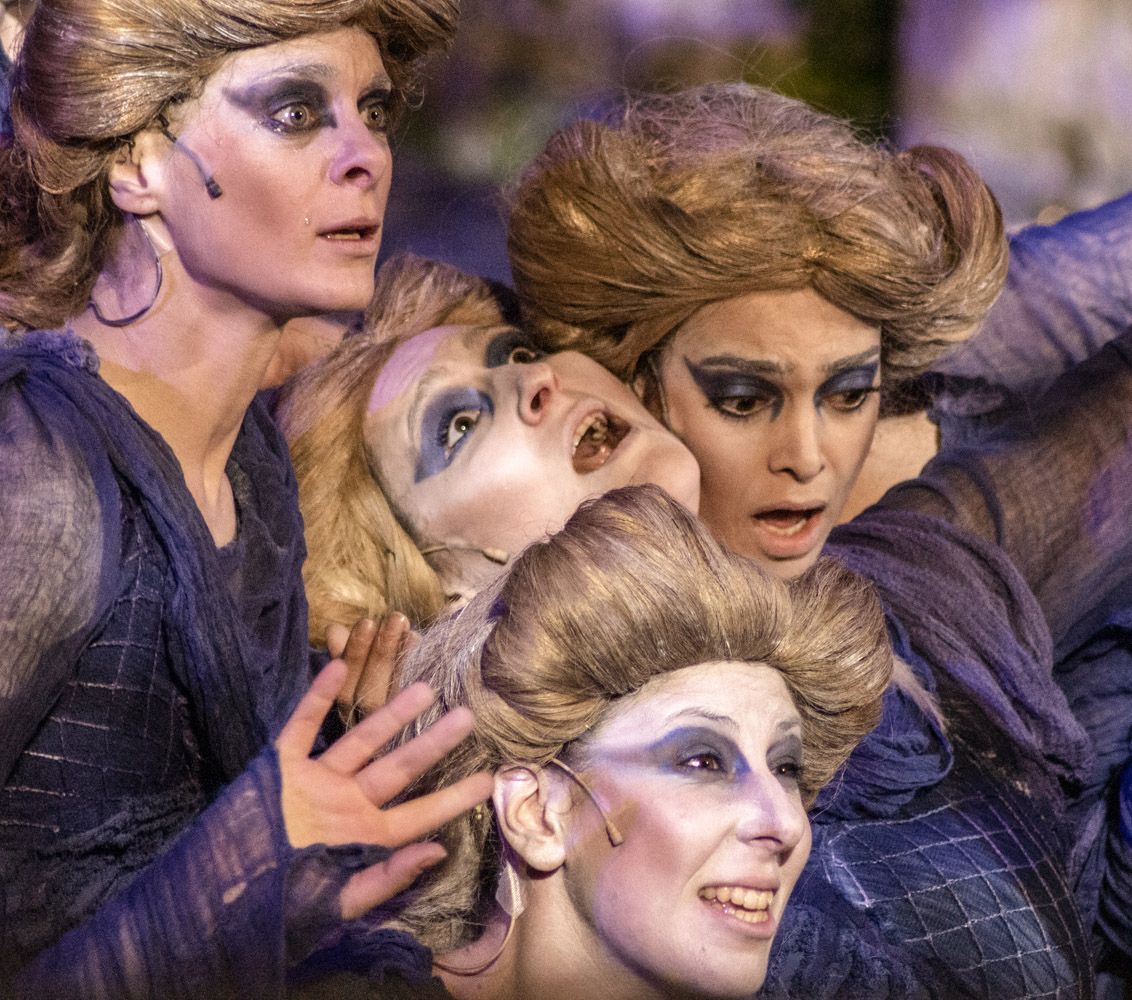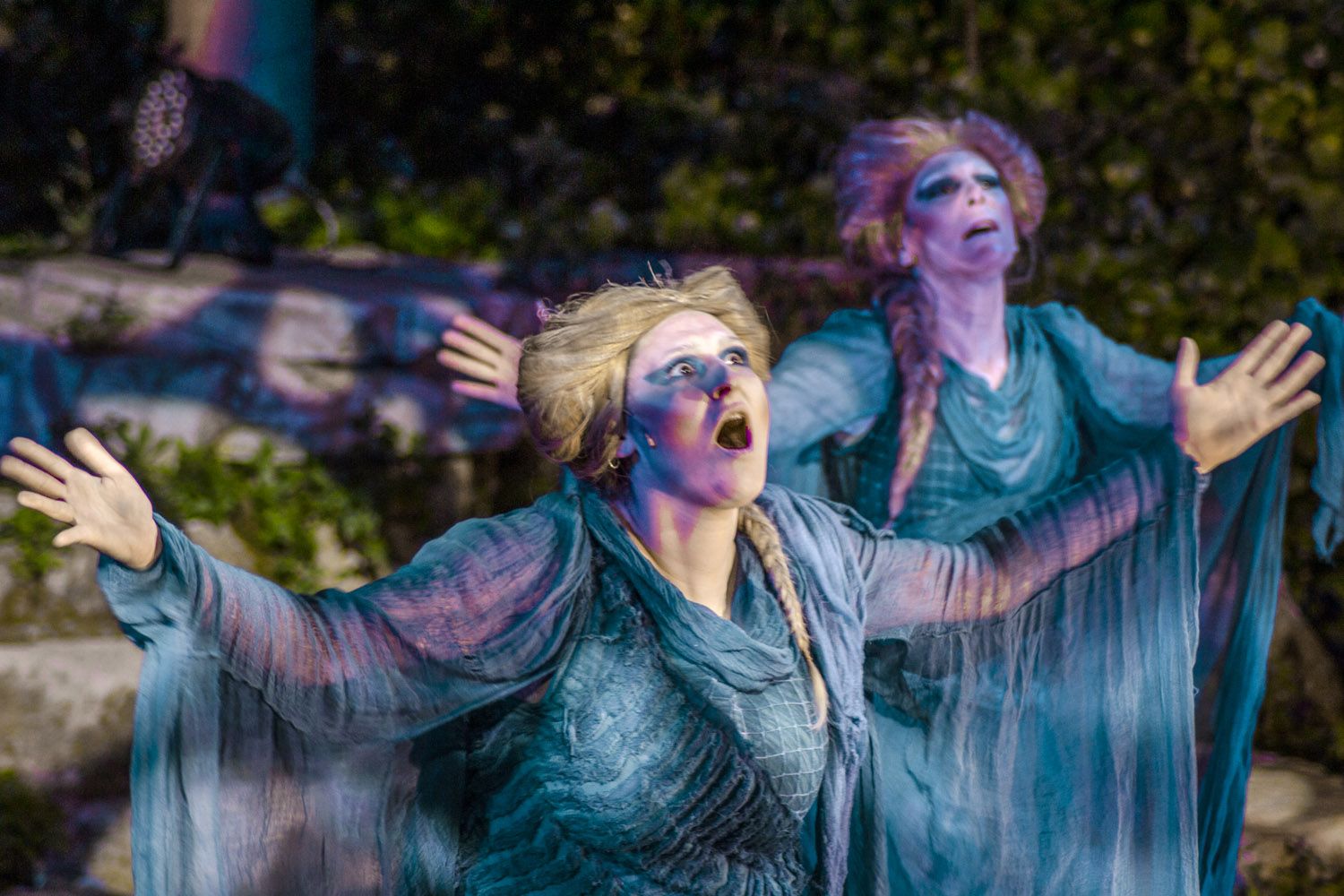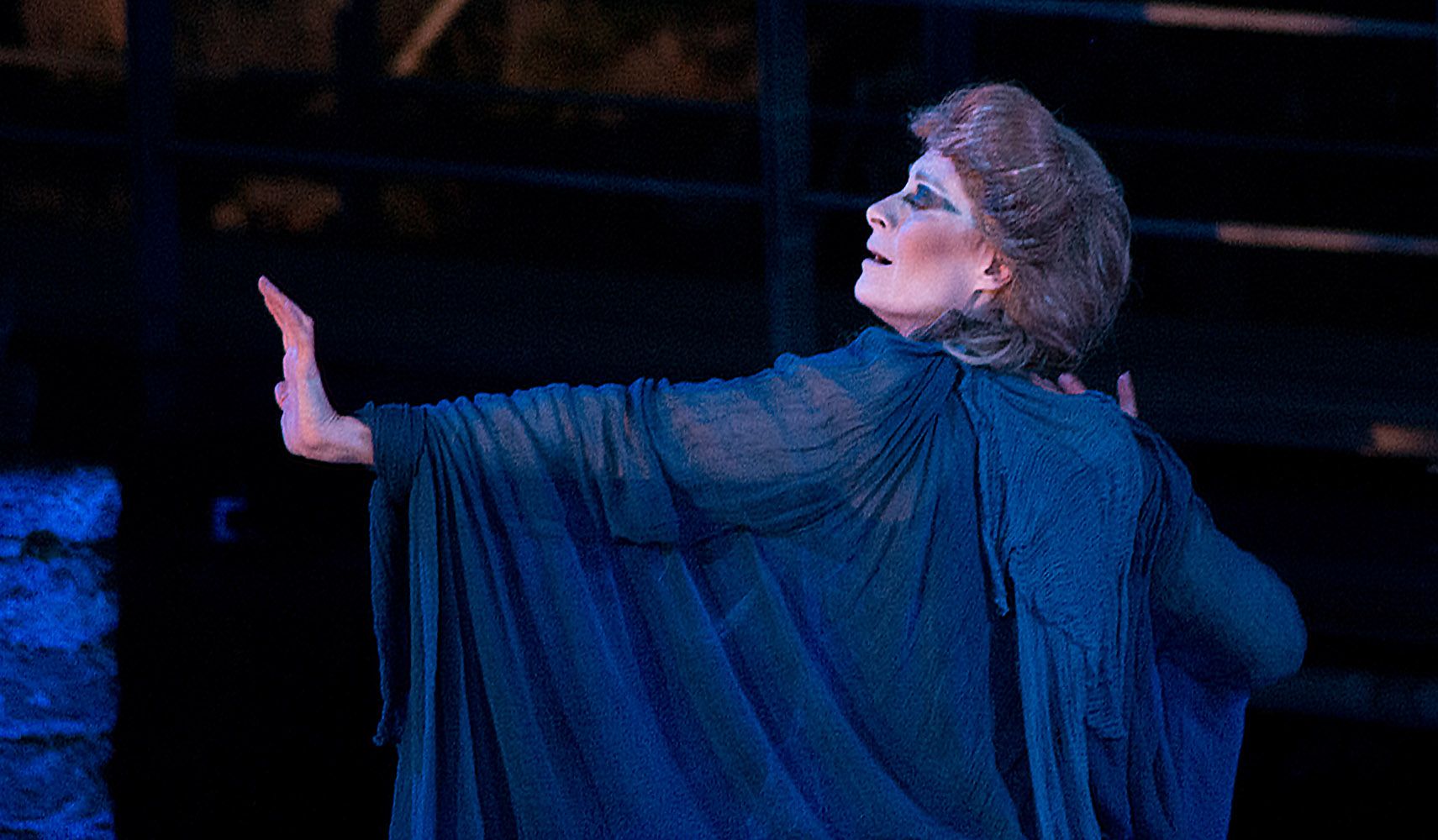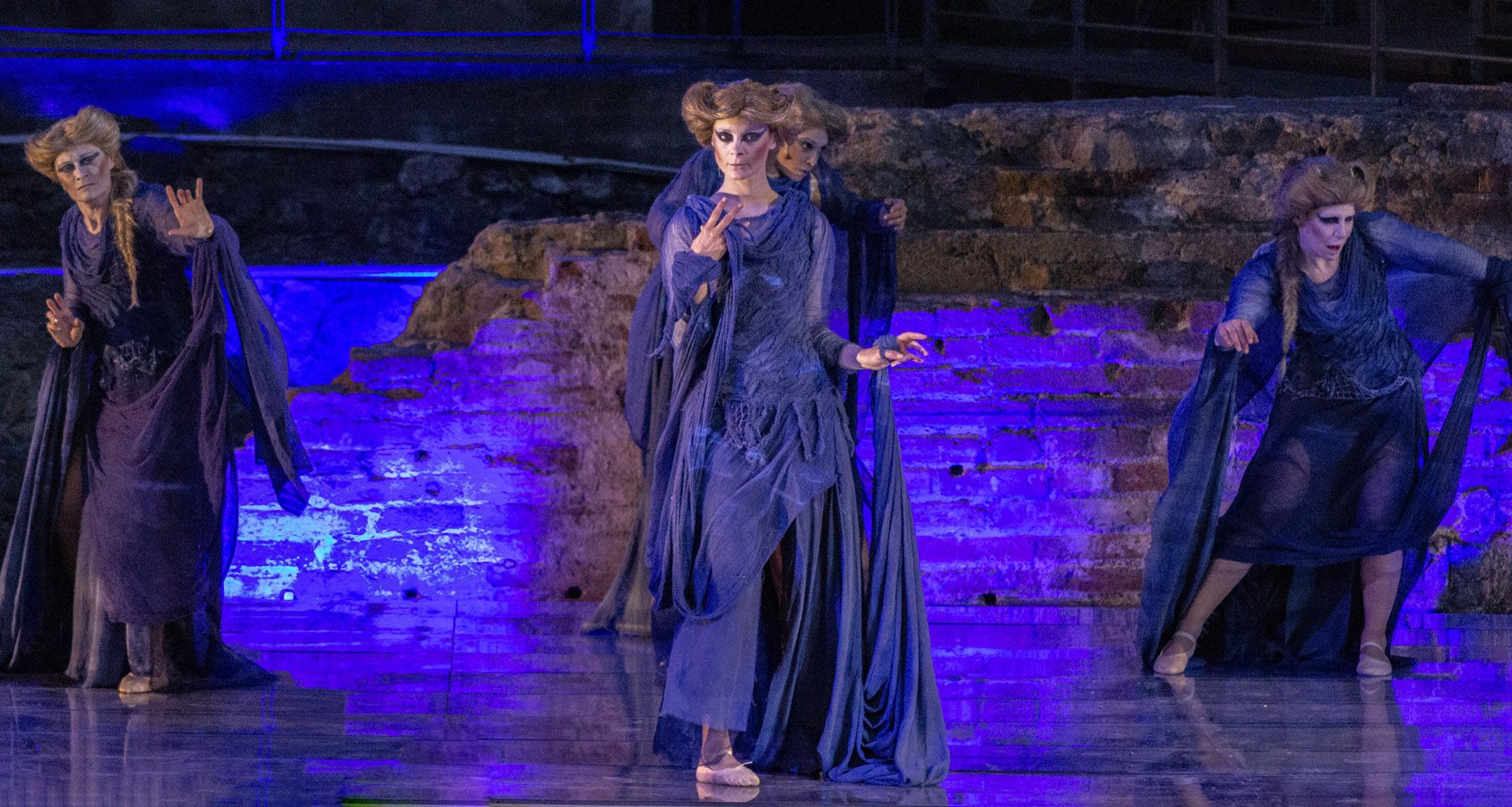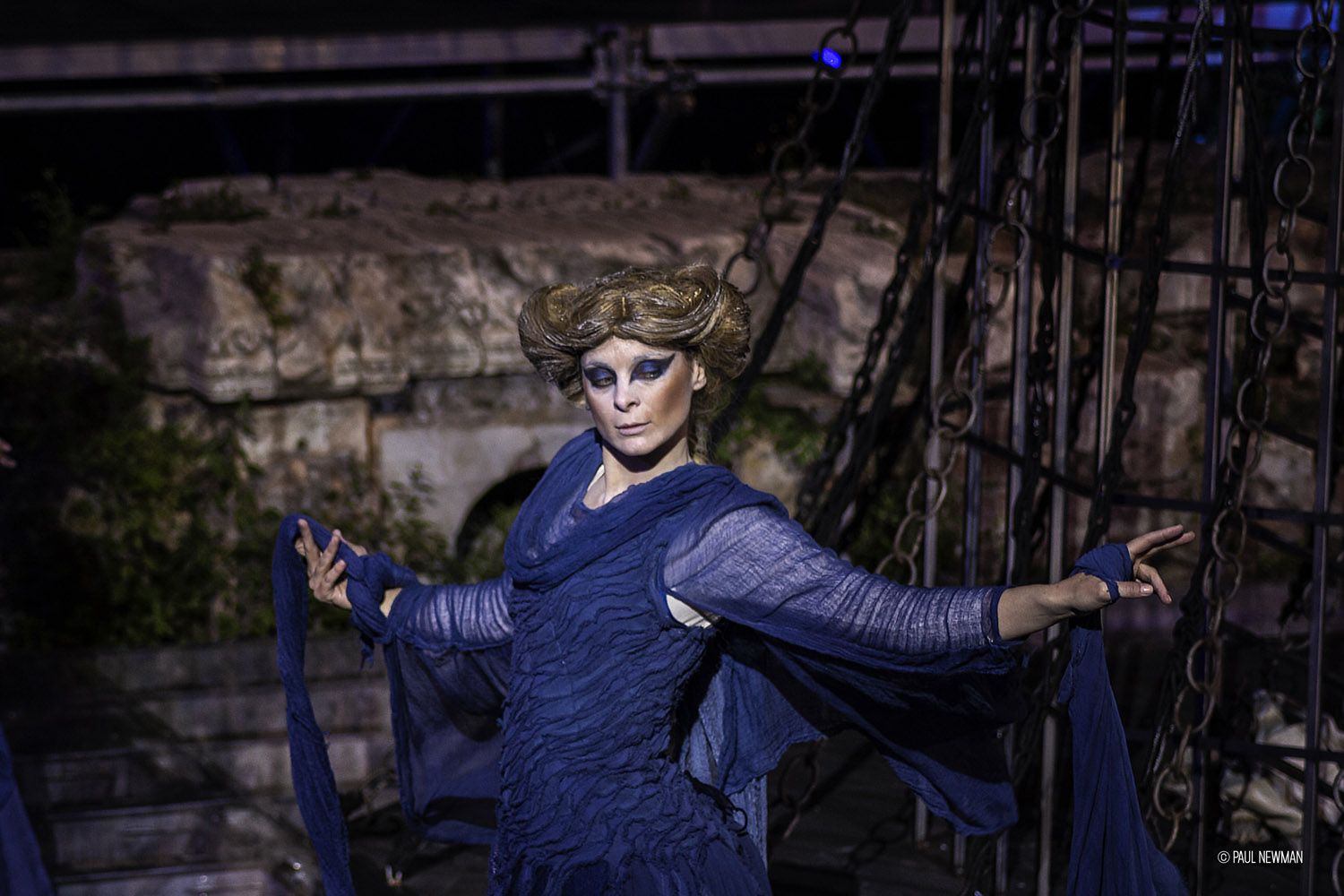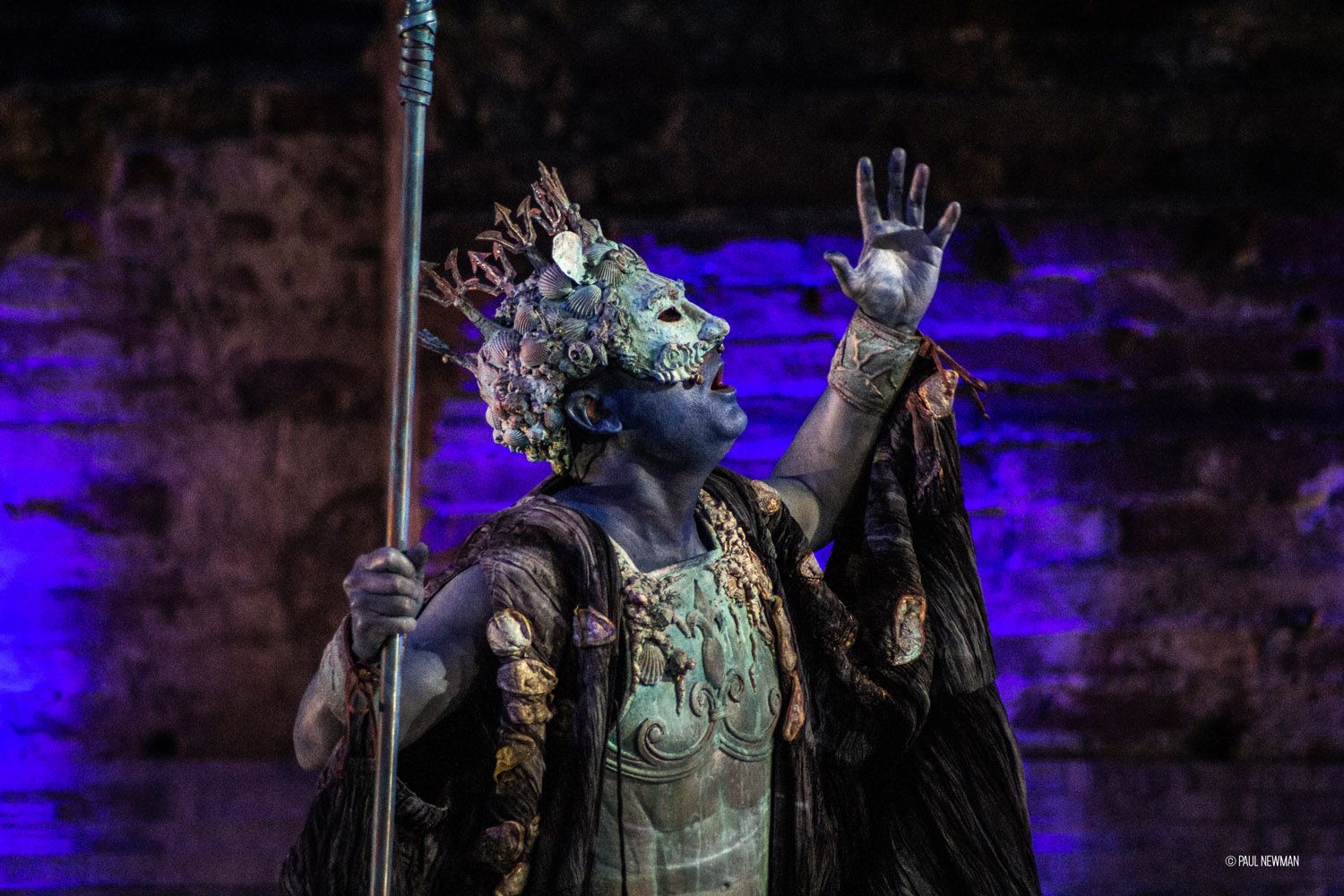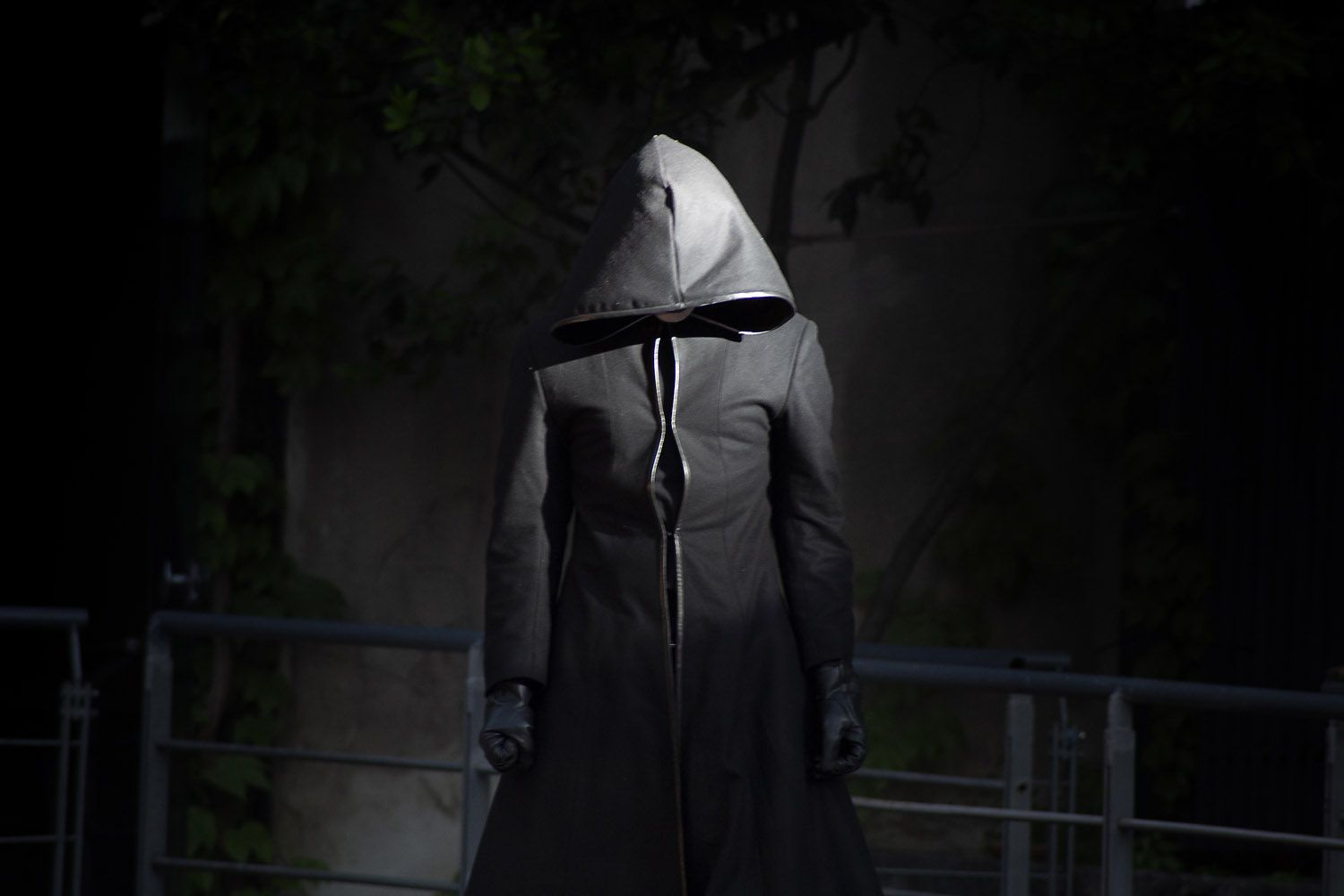PROMETHEUS BOUND by Aeschylus
- Wednesday, July 28“Skali” Amphitheatre
- Friday, July 30Curium Ancient Theatre
- Performances start at:21:00Please arrive at the theatre before 20:15
Prometheus Bound, Aeschylus’ shocking tragedy, is staged by the Associazione Culturale Dide Di Michele Dio and the Fahrenheit 451 Teatro of Italy, under the direction of the award-winning director, Daniele Salvo.
Prometheus, he who stole the fire, an enemy of the Gods and a friend of mortals, both a victim and a perpetrator, found somewhere between the past and the future, is a timeless symbol of resistance against authority. Aeschylus deals with the refusal of Prometheus, who while chained on the rocks of Caucasus still refuses to submit to the will of “ruthless” Zeus.
A deeply archetypal text, Prometheus Bound is a structured poetic-philosophical treatise on human conscience, a source of concepts and meanings that transcend the boundaries of ancient Greek mythology, permeating Western thought and culture. The fire that Prometheus stole is a light that continues to burn.
WITH GREEK AND ENGLISH SURTITLES
- Direction:
Daniele Salvo
- Set design:
Fabiana Di Marco
- Costume design:
Daniele Gelsi
- Lighting design :
Giuseppe Filipponio
- Sound design :
Francesco Arizzi
- Director’s assistant:
Alessandro Guerra
- Production Manager:
Michele Di Dio
Cast:
- Prometheus:
Alessandro Albertin
- Io/Bia:
Melania Giglio
- Oceanus/Cratus:
Massimiliano Giovanetti
- Hephaestus/Hermes:
Simone Ciampi
- Ananke:
Salvo Lupo
- Chorus of Oceanids:
Marcella Favilla,
Giulia Galiani,
Francesca Maria,
Marta Nuti,
Giulia Diomede,
Giuditta Pasquinelli,
Ester Pantano
Director’s note
Prometheus the fire thief, the Gods’ enemy, Prometheus the friend of mortals, the light bearer, Prometheus victim and culprit, creature of both the past and the future, Prometheus the arrogant.
In a wasteland, in a mythical era, where Titans reign supreme and Gods control the destiny of both time and space, Prometheus dares to go against Zeus, the new absolute God. The clash between Prometheus and Zeus is frightening, unimaginable. It’s a real sacrificial crisis. Just like Jesus Christ, Prometheus suffers because of men, just like Him he’s subjected to an exemplary and unjust punishment.
The myth of Prometheus is the central theme of the entire western philosophy and culture and marks a crucial moment in human prehistory, where mankind lets go of darkness, fear and uncertainty to embrace the light, the future and a new era.
Fire, together with air and water, is one of the sacred elements, exclusive prerogative of the Gods. Only with fire can mortals really become men. Until then, they lived in darkness, ignorance and fear. Fire didn’t defeat death, but removed the fear of death. Knowledge, though, comes at a price and suffering is a precondition to attain it: that’s the only way to achieve progress. Zeus wants to annihilate mankind, the race of the ephemeral beings, insignificant parasites, whereas Prometheus, thanks to the gift of fire, wants to give them an opportunity.
Fire is the divine spark that makes everything possible, while lighting the way. The myth of Prometheus talks about us, the human condition and its frailty, its duplicity, its ambivalence and reminds us that precisely our ephemeral being is the ultimate sense of our condition. The misconception of identity, the illusion of the Ego, our desire for uniqueness, the will of shaping destiny and controlling the elements, they all fall apart confronted with the Gods’ world. Human greatness is risible and certainly not achieved through arrogance, but through a realistic understanding of the boundaries of human knowledge and power.
With great artistry, Aeschylus goes into depth and enlightens us; past and future, like arches of a sturdy bridge, support what unfolds on stage. Mankind, as depicted in Prometheus, is degraded, compromised and the Gods represent a world in decline, inevitably destined to come to an end. The tyrant will fall, eventually. Today’s man asks himself fundamental questions: will there be a future for humans or are we just faced with a catastrophic prospect? Which role do science and technology, today exclusively regarded as a beacon for the future, play in this catastrophe? What’s the price of progress? The loss of memory and identity? The degradation of our values and our inevitable transformation into consumers/consumables? What’s the relationship between man and God today, in such a difficult time of intolerance, racism and fundamentalism?
Prometheus is a borderline hero, the mediator between these two worlds, so different from each other. Man is a terrible creature. But even more terrible is the world of the Gods. A great master used to say that ancient writings are like the light emitted by bright stars that no longer exist. To update these literary works and try to find a direct correspondence at all costs would be like turning away from our modernity.
In this era of lost values and ideals, characterized by degradation and absolute superficiality, devoid of Gods and Titans and saturated with human arrogance, it is absolutely necessary to deal with ancient texts and try to interpret the light emitted by those stars that no longer exist, stop on the brink of the abyss and wait, gaze at the light and think about our future. For a moment. Just for a moment.
Daniele Salvo
ASSOCIAZIONE CULTURALE DIDE DI MICHELE DIO
Michele Di Dio is the producer of the “Amenanos Festival” at Ancient Theatre of Catania and Morgantina, Italy. He is the legal representative of DiDe Cultural Association and Michele Di Dio Management. He has Bachelor Degree in Communication Sciences in Cultural Heritage, specialist degree in Performing arts and multimedia communication and another degree in Modern Literature.
Since 2016, he has created a cycle of classical performances in Sicily, involving ancient theatres that for a long time did not have classical repertory of Greek tragedies. In 2019 this experience was made in Catania, with “Amenanos Festival”, the first Classic Festival at the Ancient Theatre of Catania.
The production of the Festival was made through the Association DiDe, with the presentation of the Greek tragedy Prometheus, directed by Daniele Salvo. With an ambitious and challenging set, Michele Di Dio had to create and finance a special solution for the stage, realising it in transparent polycarbonate so that the underground traversed by the river Amenano, remains possible to be seen by the public. This solution has received a prestigious national Award.
A short list of theatres and archaeological sites where Michele Di Dio has worked organizing classical representations: Ancient Theatres of Morgantina, Taormina, Catania, The Wall of Timoleonte in Gela, Theatre Samonà of Sciacca (indoor theatre). Important to underline, is also the successful cooperation and partnership with University Departments, Research Centres and many Italian schools.
FAHRENHEIT 451 TEATRO
Fahrenheit 451 Teatro comes to life from the experience and the artistic vision of Daniele Salvo, Alfonso Veneroso and Melania Giglio. In 21 years of activity, Fahrenheit has produced countless works for theatre, television and video.
Recalling among the main collaborations are the following: Ferdinandea: the thinking island directed by Daniele Salvo and Claudio Pappalardo (International Film Festival Doc-fest of Palazzo Venezia, Rome), Evgenij Onegin, The Dreamers, Abelardo and Eloisa – story of the year 1000, Lost paradises – the Apocryphal Gospels (Turin Winter Olympics), We are all in danger, the last interview of Pier Paolo Pasolini, The Constitution of the Italian Republic , The Farewell, an evening dedicated to W.A. Mozart, Julius Caesar by W. Shakespeare, (collaboration with Gigi Proietti – Globe Theatre Rome). Also, Prague Spring (High Patronage of the President of the Republic Giorgio Napolitano), Gramsci a Turi, Borderland – Journey to the Land of Israel, all directed by Daniele Salvo and Spoonface Steinberg by Lee Hall, directed by Marco Carniti.
In 2019 and 2021 Fahrenheit collaborates with the Dide Association and the Michele Di Dio Management Association for the “Amenanos Festival” of Catania, a prestigious Greek and Latin Theatre Festival and with the Ancient Theatre Festival of Morgantina.
